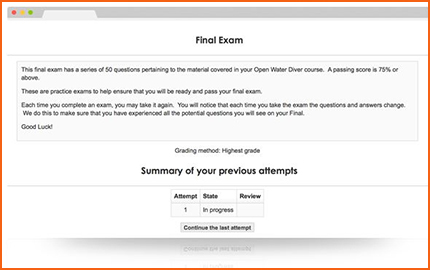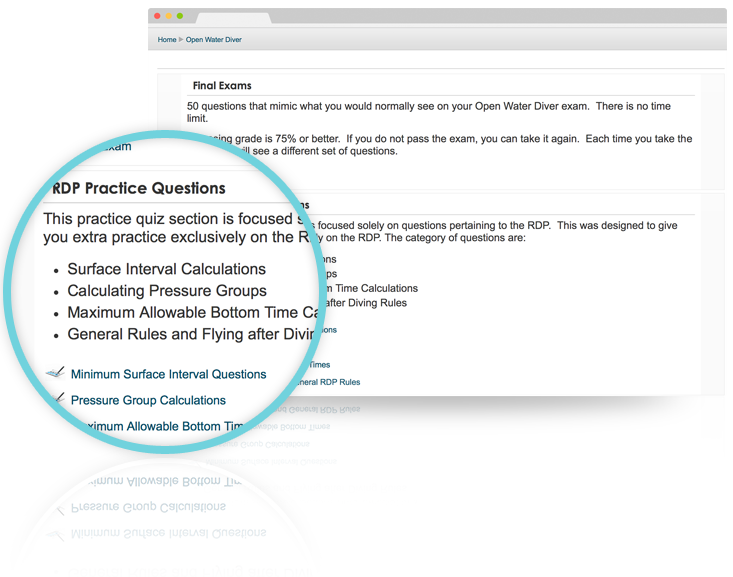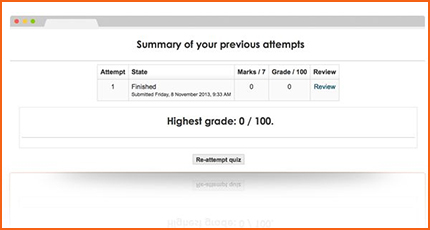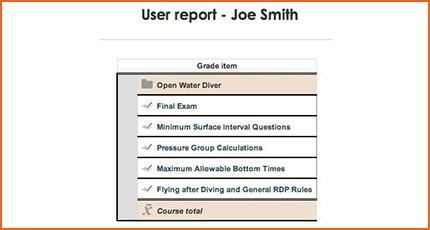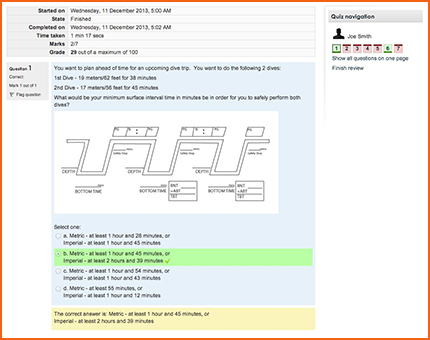Open Water Diver Tour
This a sample quiz. The actual practice exams are 50 questions each, just like you will see on your final exam. All questions on our exams are based on the same type of questions you will see when you take the actual final.
See enrollment options below.
Quiz Summary
0 of 10 questions completed
Questions:
- 1
- 2
- 3
- 4
- 5
- 6
- 7
- 8
- 9
- 10
Information
You have already completed the quiz before. Hence you can not start it again.
Quiz is loading...
You must sign in or sign up to start the quiz.
You must first complete the following:
Results
Results
0 of 10 questions answered correctly
Your time:
Time has elapsed
You have reached 0 of 0 point(s), (0)
Earned Point(s): 0 of 0, (0)
0 Essay(s) Pending (Possible Point(s): 0)
Categories
- Not categorized 0%
- 1
- 2
- 3
- 4
- 5
- 6
- 7
- 8
- 9
- 10
- Answered
- Review
-
Question 1 of 10
1. Question
You do a dive to 23 meters/74 feet for 27 minutes. After a 52 minute surface interval, you want to do another dive to 14 meters/46 feet. What is the maximum allowable time for the second dive?
CorrectIncorrect -
Question 2 of 10
2. Question
Let's say that the air in your tank lasts 60 minutes at the surface. If you were to descend to 20 meters/65 feet, how long would your air last if your were breathing normally?
CorrectIncorrect -
Question 3 of 10
3. Question
CorrectIncorrect -
Question 4 of 10
4. Question
There are several things you can do to help reduce the effects of poor visibility underwater. They include:
CorrectIncorrect -
Question 5 of 10
5. Question
If you took a glass filled with air and you took it down to 20 meters/65 feet, the volume of the air inside the glass would be reduced by 2 times, or it would be 1/2 the volume as it was on the surface.
CorrectIncorrect -
Question 6 of 10
6. Question
What is the altitude above which the dive tables should not be used unless special procedures are followed.
CorrectIncorrect -
Question 7 of 10
7. Question
When diving, if your regulator begins to free flow, what should you do?
CorrectIncorrect -
Question 8 of 10
8. Question
CorrectIncorrect -
Question 9 of 10
9. Question
When ____________ forms in the bloodstream and tissues it can cause DCS.
CorrectIncorrect -
Question 10 of 10
10. Question
If you put an object in salt water and it is neutrally buoyant, that same object in fresh water will most likely:
CorrectIncorrect










